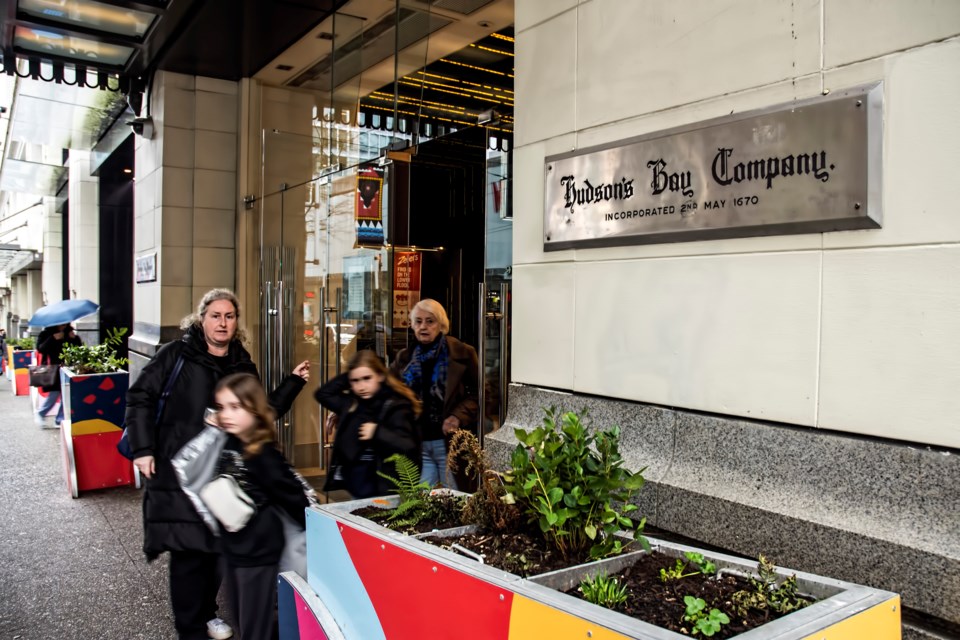The Hudson’s Bay Co.’s plan to stave off bankruptcy by liquidating stock, closing stores and sustaining operations at six Eastern Canadian locations is a last-ditch effort to avoid the company’s demise after 355 years in business.
It also leaves an empty 637,000-square-foot, nine-storey location at arguably the most accessible and central intersection in the province, at West Georgia and Granville streets.
Retail analysts say the retailer failed to stay relevant as shopping trends changed over the past few decades.
Two core headwinds possibly most responsible for the Bay’s decline were that the company did not have many proprietary products and that it had private-equity firm owners, retail analysts told BIV.
DIG360 principal David Gray told BIV that successful Canadian retailers today, such as B.C.-based Aritzia Inc. and Lululemon Athletica Inc., as well as Québec-based La Maison Simons, all thrive largely because they sell distinctive products made specifically for those retailers.
Gray said the Bay evolved to sell third-party branded products that were widely available elsewhere.
U.S.-based private equity firm NRDC Equity Partners, founded by real-estate investor Richard Baker, bought the Hudson’s Bay in 2008.
“Private equity really aren’t builders,” Gray said. “They’re wired to extract as much value for as long as possible, but they are not going to make big bets or take big risks.”
Retailers steered by a founder-owner or having had a culture deeply instilled by that founder fare better, he suggested.
Gray pointed to founder Brian Hill being chair at Aritzia, and Lululemon retaining a culture that founder Chip Wilson took pains to create.
Vancouver’s Mountain Equipment Co. (MEC) ran into trouble due in part to excessive spending and building an opulent $28 million headquarters not long before the pandemic hit.
They then entered creditor protection, where they were purchased in October 2020 by U.S. private-equity firm Kingswood Capital Management—a venture with separate owners and no connection to Kingswood Capital Corp. or Kingswood Properties, which are holdings of Vancouver’s Segal family.
The private equity firm has not been able to turn things around, perhaps because it aimed to extract value from the company, Gray said.
Word is that MEC is trying to find new owners. Many suppliers have filed lawsuits against MEC, seeking payment for shipments.
Retail Insider Media owner Craig Patterson agreed that founder-owners can be more passionate about creating a strong brand experience than often is the case with private-equity firms.
Multiple Hudson’s Bay stores have suffered due to the company’s owner spending paltry sums on maintenance, he said.
Escalators and elevators have long not worked at the company’s flagship Vancouver store, and customers shopping at the liquidation sale need to climb up to six flights of stairs.
Patterson said he has heard that the cash-strapped retailer was behind in payments to maintenance companies, which then stopped providing escalator-repair services to Hudson’s Bay.
“Multiple people have told me that,” he said.


